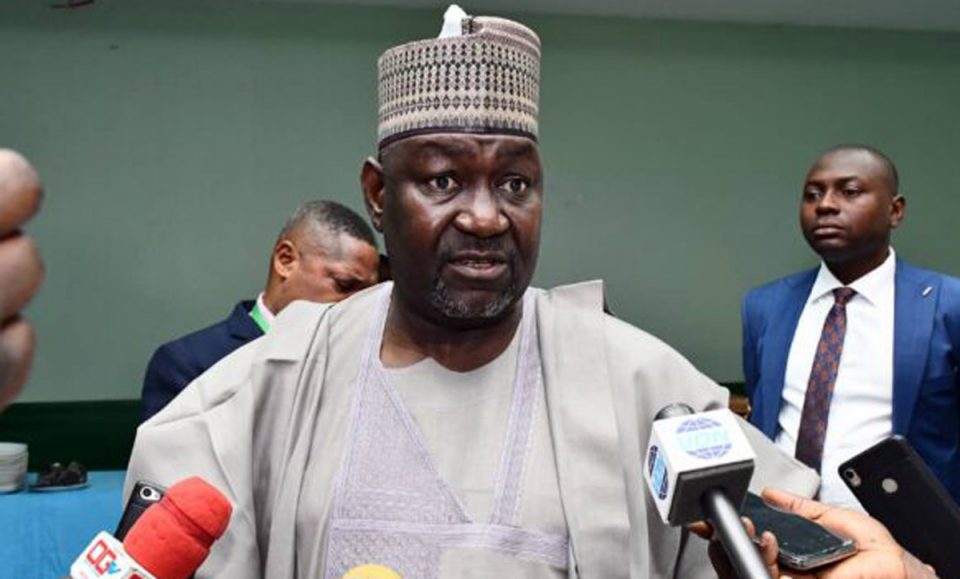The Ministry of Power says some sections in the new Electricity Bill 2022 will dilute the powers of the ministry to effectively supervise agencies under it.
Minister of Power, Mr Abubakar Aliyu, raised the concern of the Ministry on Monday at a public hearing on Electricity Bill 2022, organised by the Senate Committee on Power.
Aliyu said it was the position of the ministry that the role of the minister as the coordinator with overall supervisory authority and its agencies needs to be strengthened in the Bill.
This, he said, would ensure that the oversight functions, which are necessary to drive government policies, are preserved.
According to him, under the Electric Power Sector Reform Act ( EPSR Act 2005), supervisory powers of the minister to oversee the power sector and offer policy directions were unencumbered.
The minister said: “In the bill, these powers appear to be severally diluted as they are in several areas subject to prior consultation with the Nigerian Electricity Regulatory Commission (NERC), (Sections 5(1)(b);5(1)(c);5(1)(g) and 5(2).
“Any such limitation on the power of the minister has the potential to hinder efficient coordination of the ministry and its agencies, impede the minister’s ability for accountability as it hinders seamless reporting to the President.
“It may also be a challenge to the President‘s mandate to direct and formulate government policies.
“Further, it has the unintended effect of subjugating the role of the minister to agencies under him on policy matters.
“We, therefore, appeal to this esteemed Committee to retain the issue of consultation between the ministry and its agencies as contained in Section 33 of the EPSR Act 2005,” he said.
He said another area of concern in the Bill was the huge discretion given to the agencies to submit reports to the minister.
“No such discretion should be permitted rather the requirement to submit report as the minister may demand should be made mandatory,” the minister said.
He also raised concern over inclusion of oversight powers of the National Assembly in the Bill, saying that it was duplication.
Aliyu said the powers of the legislature are clearly provided in the 1999 Constitution of the Federal Republic of Nigeria as amended.
He also said that there was the need to include in the Bill an Act to establish the National Power Training Institute of Nigeria (NAPTIN).
“Unlike all other agencies mentioned in the ESPR Act, there was no specific mention or reference to the establishment of the training institute in the Act.
“It is our considered opinion that there is the need to specifically enact a law establishing the institute to define its objects and functions.
‘“The appointment of Director-General, Directors, Governing Council and Board of Directors should also be considered.
“Condition of service of its directors and chief executive, including other principal officers, tenure, power sector policy on training and capacity development, minimum certification for professional,” he said.
He commended the Senate Committee for the steps to improve the power sector through the enactment of a unifying law to facilitate inflow of investors and improve power generation and distribution to Nigerians.
Similarly, Chairman of the Nigerian Electricity Regulatory Commission (NERC),Dr.Sanusi Garba, also faulted a section of the Bill proposing the establishment of Electricity Tribunal.
Garba said that it would create confusion in the sector as the tribunal might negate the regulatory responsibilities of NERC.
Earlier, Chairman of the Committee, Sen.Gabriel Suswam, said the public hearing was designed to seek inputs from stakeholders towards the passage of the Bill.
Suswam said the Bill was designed to provide a uniform law for the sector, drive and promote investors’ confidence and ensure sustainable power sector in Nigeria.
President of the Senate, Ahmad Lawan, who declared the event open, said it was time for Nigeria to enact a new electricity law in line with global trends in the sector.
Lawn said the Bill, when passed would further attract investors and address the challenges in the sector.
The stakeholders present at the first day of the public hearing includes the Nigerian Electricity Management Services (NEMSA), Energy Commission of Nigeria (ECN), Nigerian Bulk Electricity Trading (NBET).
Others are Rural Electrification Agency (REA), Transmission Company of Nigeria (TCN). Some officials of Distribution Companies (DisCos) and Generation Companies (GenCos) ,among others were also in attendance.




